Conservative MP Ben Obese-Jecty has delivered a stark warning that Britain’s approach to drones may fall short of the pace set by conflicts in Ukraine and Gaza, telling Westminster Hall that “the nature of warfare has changed.”
Speaking during a 3 September debate on drones in defence, the Huntingdon MP drew on his background in armoured infantry to argue that recent wars had triggered “a paradigm shift in the nature of warfare—a tangential move away from the manoeuvre warfare that has shaped military thinking since the blitzkrieg illustrated the potential of speed and firepower.”
He noted that the previous Conservative Government launched a £4.5 billion UK defence drone strategy in February 2024, but questioned its coherence after the latest Strategic Defence Review (SDR). The Army’s new “high-low mix” approach, he said, needed far more detail.
Quoting Chief of the General Staff General Sir Roly Walker’s remarks at RUSI’s Land Warfare Conference, he recalled: “I want 20% of our lethality to come from the survivable layer, 40% from the attritable, and 40% from consumable… and I want to spend 50% of our money on the 20% of crewed and expensive, and 50% on the remaining 80%.”
Obese-Jecty warned that for infantrymen, first-person-view drones were already devastating. “The sight of individual soldiers being stalked slowly by drones hovering just behind them, and menaced and killed at will, strikes fear into my heart for the future of being an infantryman.” While counter-drone measures were emerging, he described a battlefield where even improvised tactics such as using biplanes with shotguns were being deployed to down drones.
Turning to the UK, he raised security concerns at home. “If RAF Brize Norton can be breached by civilians on scooters, it can be easily breached by a swarm of drones. What price our air-to-air refuelling or heavy lift capability? That is not easily replaced and fairly easily defeated on the ground.” He pressed ministers on what permanent counter-drone measures were being installed at operational bases.
The MP set out the different tiers of capability. At the lowest, handheld commercial drones were proving cheap but lethal. He argued that support to Ukraine should be seen as investment in UK knowledge: “It is not cynical to suggest that the current conflict is a helpful proving ground for our own future capability.” He went further, predicting the adaptation of advanced warheads to FPV drones, saying: “The application of something like a two-stage warhead to an FPV drone is going to become an increasingly potent threat.”
On larger systems, he pointed to the RAF’s new Protector RG Mk1 as a significant step, but contrasted it with the spiralling ambitions of the Global Combat Air Programme (GCAP). “The elephant in the room is GCAP—a trilateral endeavour with Italy and Japan that aims to deliver a sixth-generation fighter by 2035… I cannot envisage a situation where we have a sovereign fighter jet that ranks as the best in the world and a squadron of drone fighters operating alongside it. We urgently need to start managing our expectation.”
Responding to an intervention from Liberal Democrat MP Edward Morello on artificial intelligence, Obese-Jecty acknowledged its growing importance but sounded a note of caution: “Once we lose control of a drone and it becomes AI-capable, in theory it could switch to a more preferential target, which may be a good opportunity, or it may be a catastrophe that ends up as front-page news.”




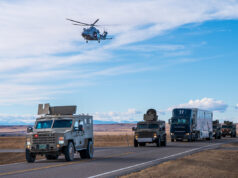

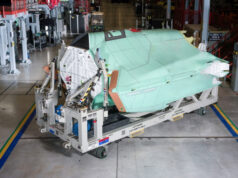
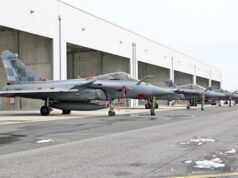

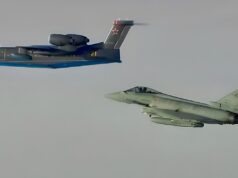
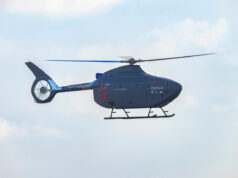
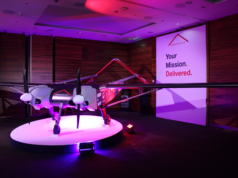


I disagree, I think our current strategy of never ending evaluations and never actually buying anything is the best way to stay ahead.
How can you fall behind if you never actually join in.
These politicians need to start thinking like “proper” military men 😀
We have wonderful and effective methods of national defence. Two strategies that work seamlessly and hand in hand.
One is called Political Yap, the most effective of the two? Kicking the Can Down the Road.
What is there to fear?
He’s wrong about Protector vs GCAP. The estimated whole-life cost of Protector, with an expectation to have more than 20 drones, was originally around £700-£800m, £816m when ordered. It’s now double that, around £1.76bn, and we are likely to stick to 16 drones. Ten years after it was announced, Protector still can’t do what we want it to do and a new radar is likely to be integrated. Being uncrewed doesn’t magically keep project costs down or specs up.
GCAP does different things and although it’ll probably cost the UK £15-£20bn to get the project to production (my guesstimates), the requirement of speed by the Japanese will help mitigate cost growth through delays, like Protector had. Also unlike Protector, we should have a good chance of an export industry that will bring in well more than £20bn. Despite Typhoon exports being limited due to bad timing to the market, I read still it brought in twice as much in exports as the government invested (so far). GCAP could be perfectly timed, even if it goes head to head with the F-47.
Systems need to be looked at in their own right, not by saying drones are good and crewed is bad. Despite all the drones they produce, Ukraine’s President Zelensky was still pretty desperate to get his hands on more manned jets.
A chilling comment made by a British drone expert said, ‘A month in drone development is becoming the standard time for drone technology, soon it will be measured in a few weeks!’
Have we got a strategy ?, when did that happen. I thought we just talked about it, had meetings, ask people to come up with ideas then never did any thing. That seems to be working well in MOD these days endless talk and fancy programme names but never ever ordering any thing.
A wish list that no one is ever going to fill, a few more very expensive consultants and focus groups. That is the UK bugger all until its too late strategy, along side buy cheap buy twice, and pay lots for bespoke stuff that no better than what is already on offer off the shelf.
We have a drone strategy published early last year. I was underwhelmed by it. Britain will become world leaders in drone technology by buying foreign drones and using them. We will also send UK-built drones to Ukraine. I may not have remembered it acurately, but that was the gist. There were also the usual buzzwords: pace, scale, innovative, resillient, AI. There. I’ve saved you a tedious 30 minutes.
I was looking forward to good read full of buss words and not a lot else. The MOD really can say lots with out really saying any thing important. Not too sure what any of the Army strategy’s are as the Army has no idea what they really are. I guess just keep the wall of big words up and order nothing and every thing will on the surface look ok.
For Army drones you should check out Project Tiquila, an oldie but foundational. There have been real drone orders under Tiquila! There’s Project Corvus, the Watchkeeper replacement – a future ten year project, part of Tiquila at a mere £150m, expect contractor owned or gold plating or both. No way this one stays on budget. Project Lewes, which should be the most important, barely gets a mention – that’s the one that’s supposed to integrate all new technologies including drones into current formations. FPV drone training come under Lewes as does so much more.
I doubt any of these were mentioned in the drone strategy.
Thank you, so there is some movement but still the old bespoke bits of kit that will no doubt have issues effecting in service date and what its expected to do, a contractors pay day. At least the MOD is sticking to the play book, lots talk for lots of money be not a lot else to show for it. And the old its out of date by the time gets in to limited service after many issue have been fixed at the MOD expense.
Mainly because the MOD kept changing the specs, trying save money any way but not going for the one that works but some cobbled together bit of kit that the contractor said they can do, may be, not sure but lets try it any way.